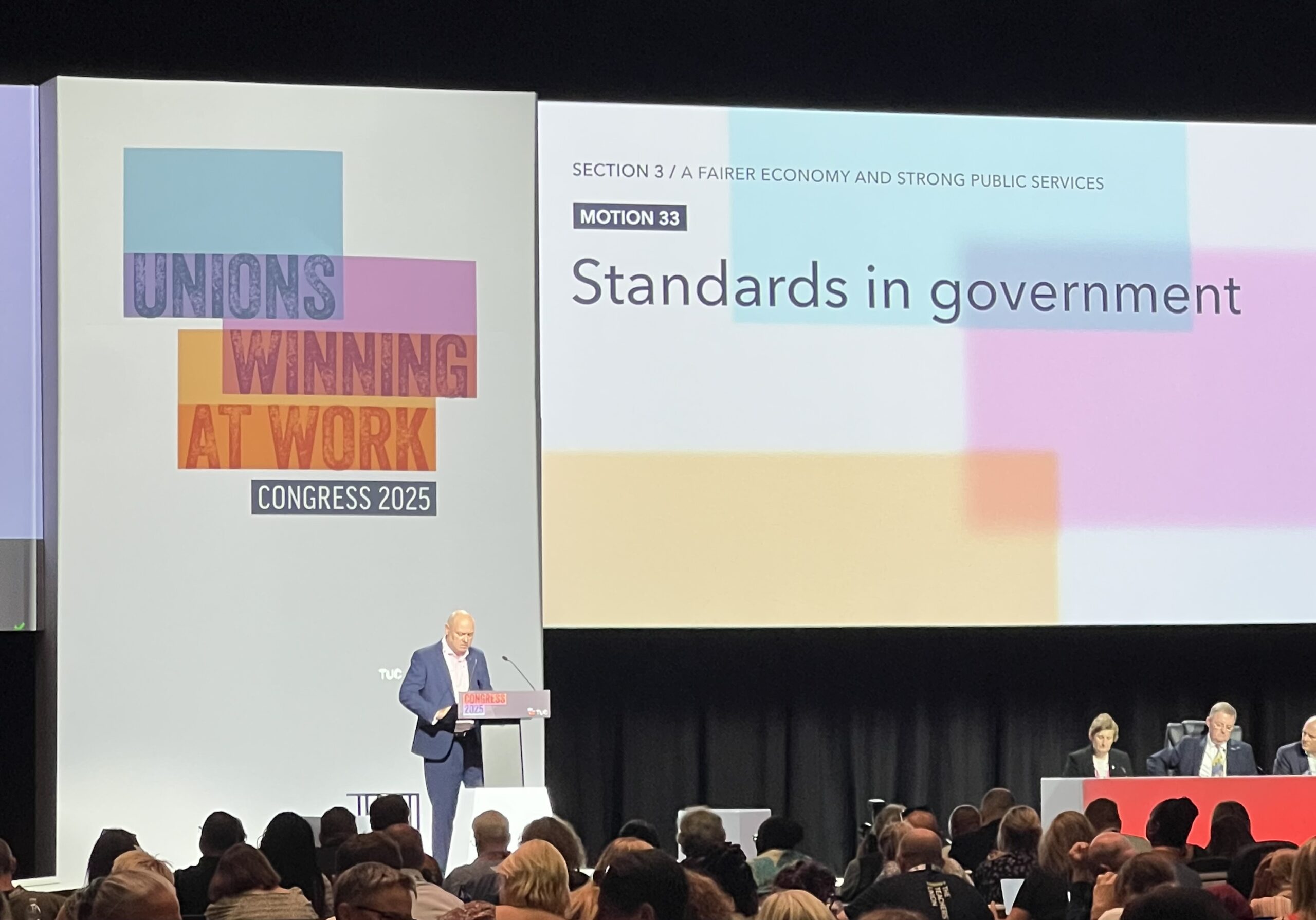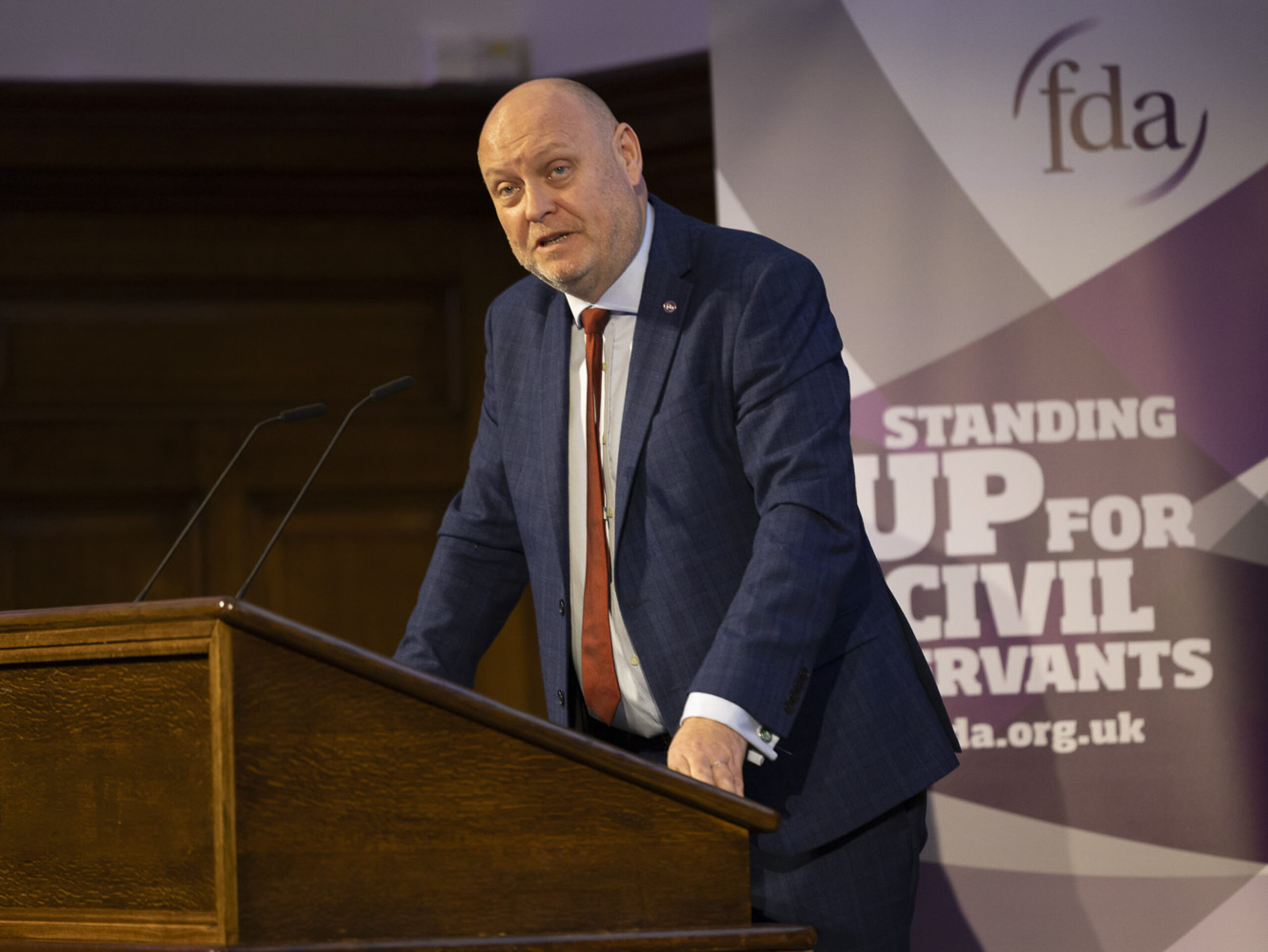Belief in Justice: Emma Knox’s story

Emma Knox worked and saved hard to put herself through university in order to begin her chosen career as a prosecutor. Having had a prosecutor tutor who “was very inspirational”, Emma completed her legal traineeship with the Crown Office and Procurator Fiscal Service (COPFS) and was taken on as a Procurator Fiscal Depute, where she worked in various locations across Scotland, including the Crown Office itself.
She eventually took up the position of District Fiscal in Inverness, returning to the north of Scotland, near her home area of Elgin: “When I got the District Fiscal post in Inverness, as you can imagine, it was my dream job in the Highlands which is just beautiful… I felt I’d almost fulfilled my ambition, I wanted to be a local Fiscal in a semi-rural area – Hamish Macbeth and all that.”
But then something happened that changed Emma’s life. In December 2012 she was involved in a near-fatal car accident on the way to work: “I think it was about seven in the morning, I liked to get in and check all the custodies from the night before… and I don’t remember anything else until I woke up in hospital about three weeks later.”
Emma was trailing behind a lorry on a slight left-hand bend, which she discovered later was travelling at about 35mph on a 60mph road. Not being able to remember anything, Emma can only guess that she pulled out to overtake or to see if anything was coming in the other direction.
Unfortunately a van was approaching and Emma ended up being involved in a head-on collision and was trapped in the car. After being in a coma for four days, she was heavily sedated for a further three weeks. When Emma finally awoke she was paralysed from the neck down and unable to speak after having an emergency tracheostomy, where a tube had been inserted into her windpipe to help her to breathe.
Emma’s first thoughts were for her two children, who at the time were 8 and 12. “Anna had just started secondary school… We had a big dilemma about whether to let Charlie see me because I was hooked up to everything, I couldn’t move from the neck down and I couldn’t communicate – for me that was really frustrating.” The family also had financial concerns, as Emma’s husband was the main caregiver and they relied upon Emma’s income.
After “the relief” of discovering that the lorry driver had been sent home from hospital the day after the accident, Emma began to focus on herself and “concentrate on getting better”. Three months later she was eventually discharged from hospital, still needing to use a wheelchair. Emma received physiotherapy almost every day and was determined that she’d be able to walk as soon as possible.
Just over six months after the accident, while she was recovering at home, Emma received a visit from her line manager, who had bad news to deliver. Not only was she being charged with dangerous driving, but she was also suspended from the job she loved while an investigation into alleged gross misconduct was carried out. While this was difficult to hear from someone Emma knew and worked with, ultimately she realised that “the alternative was getting a visit from the police, which would have been pretty horrible too”.
After what Emma calls a “blub fest”, she informed her lawyer that she wanted to plead guilty at the earliest opportunity and called on the FDA to represent her at the disciplinary hearing arranged by her employer.
Emma did feel that she was being made an example of by the department but admits “even that, logically, I could understand. Prosecutors have to be seen to be beyond reproach. However, I was in turmoil. I knew that I was responsible for the accident and it fell into the realms of dangerous driving. It was a serious offence, but it was a mistake, a split-second error of judgment. It genuinely never crossed my mind that I would lose my job.”
While recovering from her injuries and still suspended from work, Emma waited seven months for the case to come to court. She praised the Secretary of her FDA Section, Fiona Eadie, and the union’s National Officer, Jim Caldwell, for being in regular contact and keeping her updated whenever they could: “I felt completely supported all the way through”.
When Emma’s case was eventually brought to the summary court, she pleaded guilty to dangerous driving. The Sheriff stated that he considered the offence to be at the lower level of what might be considered dangerous driving and gave Emma a nominal fine and a two-year driving ban, which was the minimum available for that offence.
Following the conclusion of the court case, Emma attended her first disciplinary hearing, which found gross misconduct due to potential reputational damage to the Fiscal Service. Emma refers to this as “my lowest point actually: not the accident, not waking up paralysed. It sounds funny speaking about it, in hindsight, but the worst day was opening the email with the letter saying as of today you are dismissed for gross misconduct”.
When Emma opened that email she was on her own at home, although in the end it didn’t feel that way. Fiona Eadie and Jim Caldwell, who had also received the email as FDA representatives, both spoke with Emma to help reassure her and discuss the possibility of beginning an appeal process. This helped Emma immensely: “I didn’t feel alone, and in terms of the support the FDA gave me I didn’t feel that this was all on my shoulders.”
However, the initial decision to dismiss was upheld following an internal appeal. Emma was unsure what to do next but Jim Caldwell and his colleagues offered the union’s support, should she want to take her case to an employment tribunal.
There was no pressure for Emma to do so: she was given the time to consider her decision and talked it over with her family. “My Dad said: ‘You cannot let this go, not for you but for everyone else who might be in this position’. And I thought about it, and the support I’d had from so many of my colleagues throughout and thought: what if they were to go through a red light or get disqualified for speeding? Where does the line lie? Where can you feel safe in your job? So I decided to go to tribunal to get some clarity as to where that line is. And to have the COPFS decision tested objectively, because it just felt unfair and wrong. You become a prosecutor because you believe in justice and fairness. I trusted my employer to act fairly and proportionately so I found it difficult to deal with the decision to dismiss, which felt both unfair and disproportionate.”
Emma’s decision was backed by the FDA. For Jim Caldwell it was about protection for other members in COPFS too, after what seemed like a zero tolerance approach to any misdemeanor from the Service: “Had it been drink, drugs or fraud we could have understood the decision, but in this case, for what was a split-second error of judgement, we had to take it to tribunal”. Caldwell felt that “even though the odds appeared to be stacked against us going to tribunal, we believed the decision was wrong and we had to go for it”.
An additional problem for Emma was that, due to the tracheostomy, she was “relying on other people to speak for me literally as well as metaphorically. But the FDA took all the hassle out of it. I never once had to ask: ‘can I rely on your support, can you do this for me?’ They were chasing me, telling me: ‘We will do this. We are on your side. You don’t have to worry about the financial side – we will help you though this.”
Thankfully for Emma, she was successful at tribunal. The three-judge bench held unanimously in Emma’s favour, making a finding of unfair dismissal and breach of contract. In reaching their decision, the judges rejected the Crown Office’s arguments about reputational damage and held that a driving error of this nature could not amount to gross misconduct. Emma also received a settlement of an undisclosed sum.
Although she was upset to have lost the career she loved and had spent years building, Emma found a new path. After initially working for a charity for people with learning difficulties, she “ended up writing quite a lot of their HR policy because of my prosecutor background, which spurred my interest”. She is now back at university, studying for an MSc and planning a career in HR management. While for many the thought of starting anew would have been daunting, Emma simply sees it as “the only way to be… If you just sit back and be grumpy all the time you’re not going to get anywhere”.
Of her union, Emma says “the FDA was amazing [and] pretty impressive… One of the big things for me was, what with trying to recover and dealing with the criminal case, it was good to know that the FDA would just take some of that load… I never felt that I was facing this alone”.
Related News
-

“Significant gaps” in current Northern Ireland standards regime, says Murtagh
FDA National Officer for Northern Ireland Robert Murtagh has called for a strengthened standards regime in Northern Ireland government.
-

FDA delegation attends TUC Congress 2025
This week, the FDA attended the 2025 TUC Congress in Brighton. FDA delegates spoke to and moved motions on a range of topics, including standards in government, public sector productivity, resilience, neurodiversity in the workplace, and TUC reform.
-

Ministers must “step up to the plate” or risk undermining the civil service, says Penman
The FDA has defended the pay and pensions of senior civil servants and called for ministers to do more to defend the civil service.